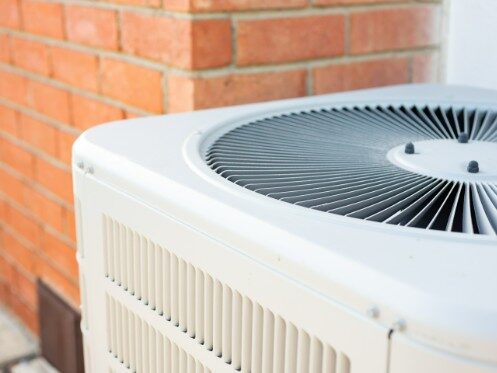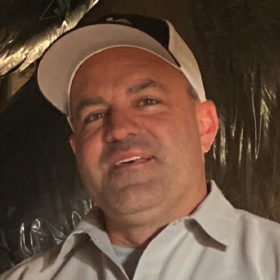Mechanical systems, like air conditioners, can leave you scratching your head as to why it is acting up. So many parts affect the entire system that it can be hard to identify the cause. Learn eight common reasons your air conditioner may not perform as expected.
1. Clogged Air Filter
A clogged air filter can cause a host of problems with your cooling system. When the air conditioning runs, you may feel warm air coming from your vents. Dirty filters can also cause your air conditioner to freeze or short cycle. In addition, you may experience inconsistent temperatures throughout your home and increased utility bills. All these issues may result from restricted airflow through the cooling system due to a gunked-up air filter.
Your air filter is among the first things to check if you have air conditioner issues. Experts recommend changing out filters every 30 to 60 days. However, there may be factors in your home that affect this timeline. For instance, homeowners with pets may need to replace their air filters more frequently than recommended because pet hair and dander can quickly build up in this essential HVAC component.
2. Thermostat Problems
Your thermostat is integral to the proper operation of your air conditioner. It tells it when it needs to cycle on and off. Several issues associated with your thermostat can wreak havoc with your air conditioner’s performance.
If you have warm air coming from your vents, first check that you do not have the fan setting on your thermostat set to On. This setting makes your cooling system’s fan blow air even when the air conditioner is not running. You should also ensure that your thermostat is programmed correctly. If not, it will raise or lower the temperature at the wrong times or to the wrong temperature.
Your thermostat could also be old or malfunctioning and no longer sensing the temperature correctly. To test your thermostat, tape an accurate thermometer on the wall next to it. Wait 15 minutes, then compare the two readings. If the readings are within a few degrees of each other, you know that your thermostat is sensing the temperature properly. If not, you may have to contact a professional to replace it.
3. Refrigerant Leaks
Your air conditioner relies on refrigerant to absorb heat inside your home and then expel that heat to the outside air. When the system has too little refrigerant because of a leak, it struggles to build the pressure needed for this process to work. This issue can lead to insufficient cooling, frozen coils, too little air coming from your vents, and short cycling. If you suspect a refrigerant leak, contact a professional to repair it and refill your system with coolant.
4. Clogged Condensate Drain
As your air conditioner runs, the cold evaporator coils condense some of the moisture from the air moving through the system. This moisture is called condensate and must drain so that it doesn’t leak all over your floor or damage your cooling system. As it drips from the evaporator coil to the drip pan, it will pick up small particles, including dust and dirt. This debris eventually clogs the drain, causing it to back up. If this is an issue, you may notice a musty smell, standing water in the drip pan, or water around your indoor unit.
5. Tripped Breakers and Blown Fuses
You may have a circuit breaker that trips or a fuse that blows when your air conditioner is running. While a power surge can cause this, it can also signal a problem with your cooling system. If your breaker trips or your fuse blows frequently, you likely have an issue that needs professional attention.
One of the most common causes of a tripped breaker is a fault with the air conditioning compressor. When the compressor strains to keep your home cool, it’ll draw more power. This may happen for a number of reasons, including too little refrigerant, restricted airflow, or excessive outside heat. When the compressor draws enough power, it will blow a fuse or trip the breaker. The same can happen when the condenser fan or circulating fan experience excessive strain, usually because they have become excessively dirty or unaligned and are caught against their frame.
6. Faulty Compressor
When you have a faulty compressor, refrigerant doesn’t get pumped through the cooling system as it should. You may notice that the air coming from your vents is not as cool as usual. In addition, your air conditioner may fail to turn on, or it could make sounds like a hum, banging, clanging, squealing, or ticking. A professional can diagnose whether your compressor needs to be replaced or if there’s some other issue with similar symptoms.
7. Dirty Coils
Your air conditioner has a coil inside the house, called the evaporator coil, and one outside the house, called the condensing coil. For your system to work properly, air must pass through these coils to effectuate the heat transfer that allows the system to cool your home. The evaporator coil inside gets cold, allowing the refrigerant to absorb heat from the air moving through the system. Outside, a properly functioning condensing coil allows the heat energy that was just absorbed to release into the outdoors.
When either of these gets dirty, they cannot pass as much air through, reducing the system’s efficiency. This happens with the evaporator coil when particles enter the system through leaks or small particles make it through the air filter. Outside, pollen and dirt from the air settle on the condensing coils. If you suspect you are having air conditioner issues because of dirty coils, you can call a professional to have them cleaned.
You should also keep an eye on anything around your condenser unit that may restrict airflow. Keep the area clear for 2 feet around all sides of the unit and 5 feet above it.
8. Worn Contactors
Contactors control the flow of electricity to your air conditioner’s condenser, compressor, and motors. When your cooling system is off, the contactors are up, and electricity will not reach your system’s components. When your thermostat calls for cool air, it sends a signal to the contactors that tell them to lower and connect the circuits in your air conditioner so that it will turn on.
These contactors can wear out over time or become pitted and stop receiving signals from your thermostat correctly. The initial sign that these components might be an issue is an unusual sound, usually a chattering or humming. If it progresses, your cooling system may fail to start altogether. Because replacing contactors requires working around high-voltage electricity, you should always call a professional to have this problem resolved.
Contact the Professionals
Homeowners around Vacaville, CA have trusted Cozy Home Services for their home service needs for more than 20 years. Our expert team provides not only heating and air conditioning maintenance, repair, and installation but also indoor air quality, solar, plumbing, and electrical services. Call to schedule your AC maintenance or repair with one of our trusted technicians today.


